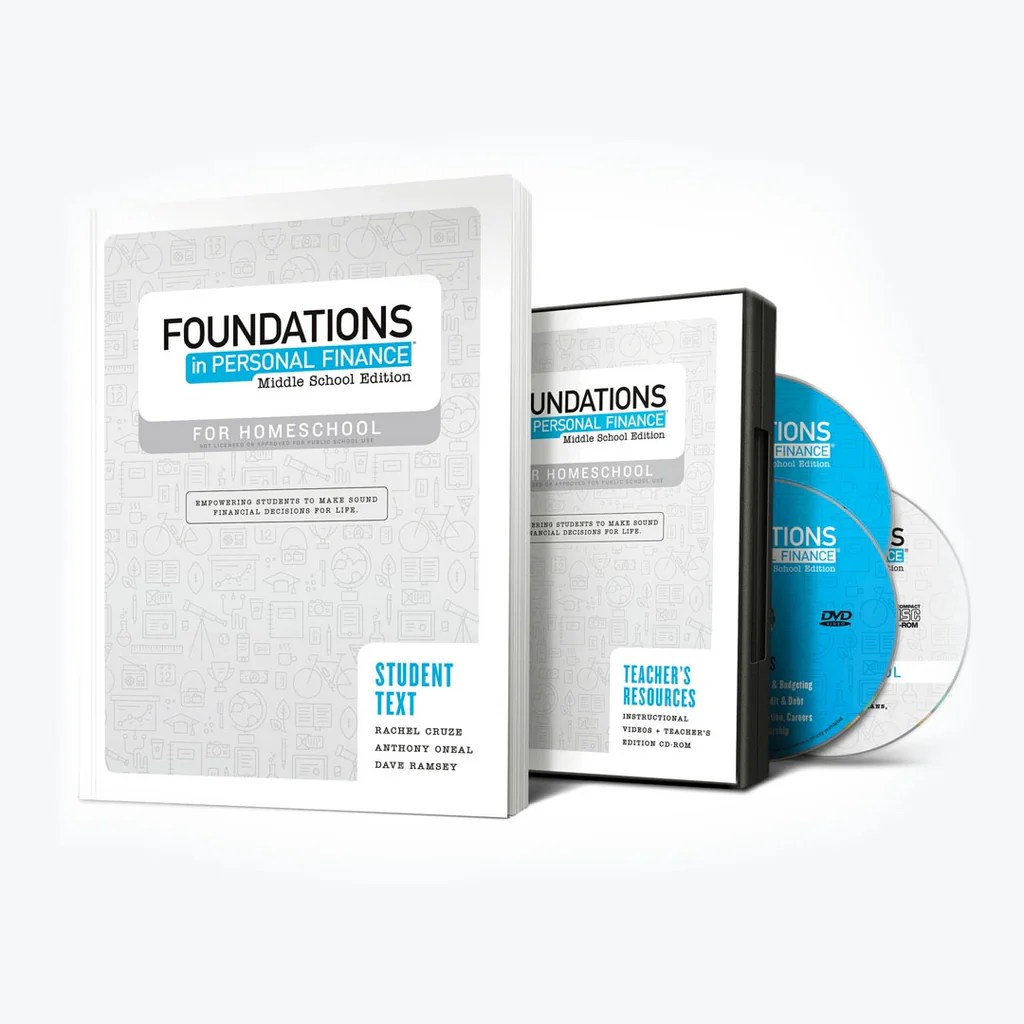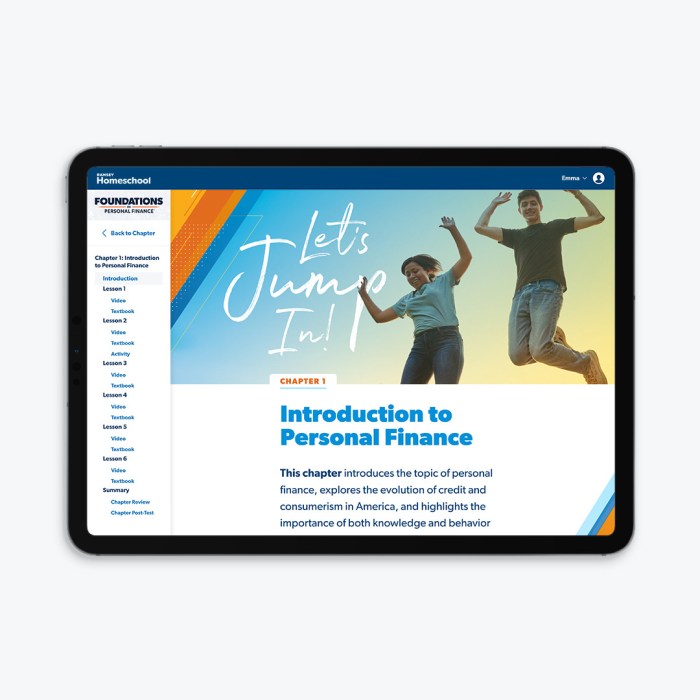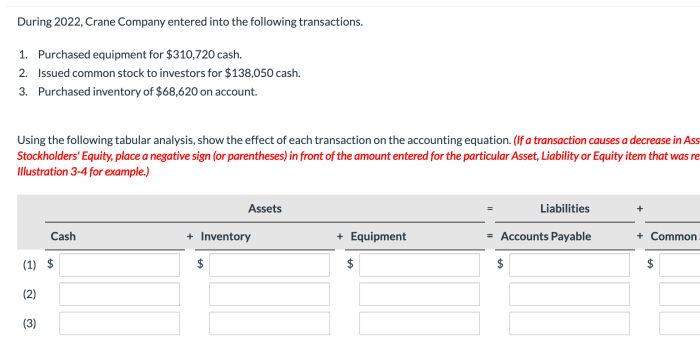Embarking on a journey of financial literacy, Foundations in Personal Finance Homeschool unveils the intricacies of managing finances effectively. This comprehensive guide empowers students with the knowledge and skills necessary to navigate the complexities of personal finance, equipping them for a future of financial stability and prosperity.
Delving into the core principles of budgeting, saving, and investing, this curriculum lays the groundwork for understanding the fundamentals of financial management. By fostering financial literacy, students develop a strong foundation for making informed decisions and achieving their financial goals.
Core Principles of Personal Finance

Personal finance is the management of one’s financial resources to achieve financial security and well-being. It encompasses budgeting, saving, investing, and managing debt and risk. Financial literacy is essential for making sound financial decisions and achieving financial goals.
Establishing a Financial Plan, Foundations in personal finance homeschool
A financial plan is a roadmap that Artikels financial goals, strategies, and actions. It should include setting financial goals, tracking expenses, and managing debt.
Managing Income and Expenses
Budgeting is the process of planning and tracking income and expenses to ensure financial stability. The 50/30/20 rule is a popular budgeting strategy that allocates 50% of income to essential expenses, 30% to discretionary expenses, and 20% to savings and debt repayment.
Identifying and reducing unnecessary expenses is crucial for financial well-being.
Saving for the Future
Saving is essential for financial security and achieving long-term goals. Different types of savings accounts include checking accounts, savings accounts, and money market accounts. Setting up an emergency fund is important for unexpected expenses. Long-term savings should be invested in assets such as stocks, bonds, or mutual funds.
Investing for Growth
Investing is the process of allocating money to assets with the potential to generate returns. Stocks represent ownership in companies, bonds represent loans to governments or corporations, and mutual funds are diversified portfolios of stocks or bonds. Choosing the right investment strategy depends on factors such as risk tolerance and investment horizon.
Managing Debt Responsibly
Debt can be a financial burden if not managed effectively. Strategies for managing debt include paying down high-interest loans first, consolidating debt, and avoiding excessive debt.
Insurance and Risk Management
Insurance is a way to protect against financial losses due to unexpected events. Different types of insurance include health insurance, life insurance, and property insurance. Assessing risk and determining appropriate coverage levels is essential for financial security.
Estate Planning and Wills
Estate planning ensures that assets are distributed according to one’s wishes after death. A will is a legal document that Artikels the distribution of assets and appoints an executor.
Ethical and Social Considerations
Personal finance decisions have ethical and social implications. Considering the environmental and social impact of investments is important for responsible financial management.
Q&A: Foundations In Personal Finance Homeschool
What are the key components of Foundations in Personal Finance Homeschool?
The curriculum covers core principles of budgeting, saving, investing, financial planning, managing income and expenses, investing for growth, managing debt responsibly, insurance and risk management, estate planning and wills, and ethical and social considerations.
How does the curriculum promote financial literacy?
By providing a comprehensive understanding of personal finance concepts, the curriculum fosters critical thinking, decision-making skills, and responsible financial habits.
Is the curriculum suitable for all homeschooling students?
Yes, the curriculum is designed to be accessible and engaging for students of all levels and backgrounds.



